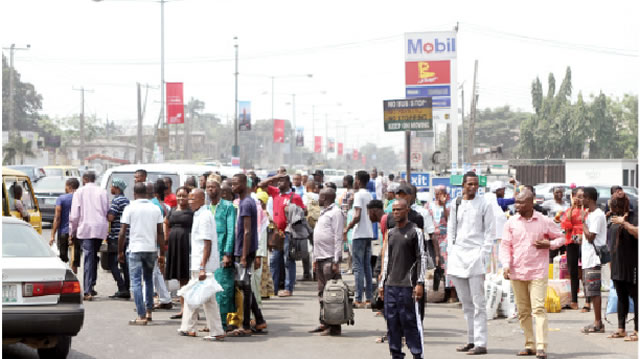The arrival hall of a Nigerian airport became a scene of frustration and anger as passengers inbound from Abidjan, Ivory Coast, discovered their luggage had been left behind by Air Côte d’Ivoire. These passengers, many connecting from the United States via Ethiopian Airlines, arrived on Thursday only to be informed that their bags had not made the journey with them. This lack of communication from the airline exacerbated the situation, leaving passengers stranded without essential items and facing uncertainty about the whereabouts of their belongings. The incident sparked outrage and raised concerns about the airline’s handling of passenger luggage and its apparent disregard for passenger welfare.
The passengers’ distress was palpable. Felicia Aina, traveling to Nigeria for a special occasion, expressed her dismay at the missing luggage, which contained the dress she intended to wear for the event. The situation was further complicated for another passenger who carried essential medication in her checked bag, leaving her anxious and vulnerable. The collective anger of the nearly 30 affected passengers resonated through the airport as they demanded answers and accountability from the airline. The lack of information and the apparent indifference of Air Côte d’Ivoire only fueled their frustration and apprehension. Several passengers voiced suspicions that the airline may have prioritized cargo over passenger luggage, a claim that further eroded their trust in the carrier.
The absence of a physical Air Côte d’Ivoire office or designated representatives in Nigeria compounded the passengers’ predicament. Attempts to contact the airline’s customer care yielded little clarity. A representative, speaking under the condition of anonymity, offered a vague assurance that the bags “might” arrive on Saturday, two days after the passengers’ arrival. The representative attributed the luggage issue to a flight cancellation on Friday and the use of a smaller aircraft, a CRJ, on Thursday, which supposedly lacked the capacity to accommodate all the checked bags. They expressed hope that a larger aircraft scheduled for Saturday would resolve the situation. This explanation, however, failed to assuage the passengers’ concerns or address the lack of prior notification.
The Nigerian Civil Aviation Authority (NCAA), responsible for overseeing air travel within the country, provided a framework for handling such incidents. Michael Achimugu, Director of Public Affairs and Consumer Protection at the NCAA, stated that airlines are obligated to inform passengers if their luggage will be delayed. Moreover, airlines are required to provide a “first-need” compensation of over $100 to each affected passenger. Should the airline fail to comply and the matter escalates to the NCAA, the compensation amount increases to $170 per passenger. Achimugu confirmed that the NCAA would investigate the incident once a formal complaint was filed, emphasizing the importance of official reporting for initiating action.
The incident involving Air Côte d’Ivoire highlights the challenges passengers face when airlines fail to adequately manage baggage handling and communication. The lack of transparency and the apparent disregard for passenger inconvenience underscore the need for stronger regulations and stricter enforcement to protect travelers’ rights. While the NCAA’s guidelines offer a recourse for affected passengers, the process relies on individual complaints, potentially leaving some passengers unaware of their entitlements or unwilling to navigate the bureaucratic process.
The experience of these passengers serves as a cautionary tale for air travelers, emphasizing the importance of understanding their rights and the procedures for seeking redress in cases of baggage mishandling. The incident also raises questions about the accountability of airlines operating internationally and the need for greater cooperation between regulatory bodies in different countries to ensure consistent standards of service and passenger protection. The frustration and uncertainty faced by these passengers underscore the need for airlines to prioritize passenger well-being and to implement robust systems for baggage management and communication to prevent similar incidents from occurring in the future. The promise of an investigation by the NCAA offers a glimmer of hope for accountability and a potential pathway for affected passengers to receive the compensation they are due.


